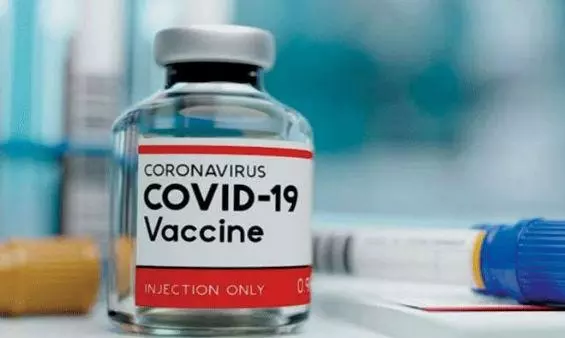
WHO urges world not to halt administration of AstraZeneca vaccines
text_fieldsThe world health organization (WHO) has requested all the countries not to stop the administration of the AstraZeneca vaccine after several countries, mostly in Europe, have suspended the use of the vaccine over safety fears.
Recently, several people in Norway were hospitalized due to blood clots formation; many under the age of 50 also reported lowered levels of blood platelets. These reports were associated with the Astrazeneca vaccine jabs, and concerns were raised about the potential safety risks of the vaccine.
Denmark and Norway have also reported isolated cases of bleeding, blood clots and a low platelet count after the AstraZeneca vaccine. The Netherlands also said it had seen about 10 cases of possible adverse side-effects from the AstraZeneca vaccine.
According to the European Medicines Agency (EMA) database, as of March 10, among the 5 million people across Europe who were given the vaccine, only about 30 people reported blood clotting.
WHO, along with EMA, had already said that the number of reported blood clots was no higher than seen in the general population, but the countries are temporarily suspending the vaccine shots until clarification on the matter is achieved.
WHO has informed that its advisory panel is reviewing the reports related to the shot and would release its findings as soon as possible. However, it said that it was unlikely to change its recommendations for widespread use of the vaccine even in countries where the South African and other variants of the virus may have a chance of reducing its efficacy because the benefits of the vaccine outweigh its risks.
According to WHO, as of March 12, more than 300 million doses of COVID-19 vaccines had been administered around the world, and no cases of death have yet been found to be caused by any of them.
"As of today, there is no evidence that the incidents are caused by the vaccine, and it is important that vaccination campaigns continue so that we can save lives and stem severe disease from the virus," WHO spokesman Christian Lindmeier said.
Netherlands, Ireland, Bulgaria, Denmark, Norway, Indonesia, Iceland, Italy and Austria are some of the countries that have currently halted the rollout of AstraZeneca as a precaution against the potential safety risk, but these countries have also acknowledged that they do not have any credible evidence with them to show the blood clots were formed as a consequence of the vaccine.
The reports on possible side effects from the vaccine have upset the vaccination campaign in the world by slowing down the process and instilling vaccine scepticism in remaining countries.























